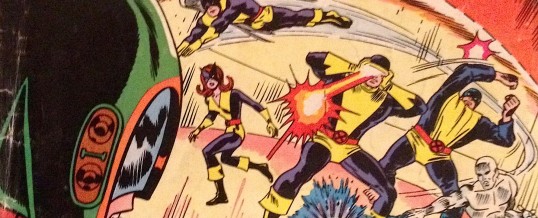
Comic books were a big part of my childhood.
As a preteen, my comic books went virtually everywhere with me. I say virtually, because they frowned upon them in church. That was about the only place I didn’t take them.
My favorites were the Marvel Comics. Spider-Man, The Fantastic Four, Iron Man, The Incredible Hulk, Captain America, The Incredible X-Men and others, took me into a world that I loved. In my comics, the bad guys tried, but the good guys always won.
Near the entrance of the Piggly Wiggly, a tall circular rack held my 20¢ treasures. As my mom and sister would stroll the aisles filling the buggy, I would struggle to decide which comic my mom would buy me that week. If I’d been good that week, I got a comic book.
My mom didn’t understand my love of comic books, but she did understand that her 20¢ purchase was an investment and savings compared to me walking with her and asking for boxes of Twinkies, Hostess Cupcakes, and every other junk food item that I saw.
Once back home, I would devour my new comic. Losing all track of time, I would read and reread every word. I had, and still have, a special affinity for the ads.
During their heyday from the 1940s through the mid-1970s, comic book ads were like no other advertising. They targeted boys. The ads can best be described as a cross between the patent medicine pitchmen of the late 1800s, and a Saturday Night Live commercial parody.
Only in comic book ads would 25¢ buy you the secret to making girls like you. If you wanted to look like Charles Atlas and be able to stop the bigger guys from kicking sand in your face at the beach, that was an extra 50¢.
A $1 bill would have real X-Ray glasses sent to your mailbox, and an additional dollar would buy you a life-size army tank.
They must have sold a ton of each of these items, because the ads ran unchanged for years.
Comic book trading was also a favorite hobby. Saturday’s would find my buddies and me sitting in the middle of one of our rooms with comics stacked and strewn across the floor. We would begin each session by declaring which comics were off limits and not up for negotiation, and which ones would require multiple comics in exchange for one that was available but highly-prized.
I even set up a trading arrangement with Mr. Snow and Mr. Walker’s barber shop. I wasn’t the only kid trading with them, either. This kept the barber shop in a fresh supply of comics for their customers, and many times, I would find a rare jewel in my trade.
The once ubiquitous comic book is now a rarity. They still publish them, but they’re expensive and the artwork is very different than what I grew up on. Kids nowadays have a cellphone or handheld video game with them most of the time, but no comic books.
I kept all of my comics. About 30 years ago, I bought items used for their conservation. Each one is in a plastic sleeve and is sorted by name, standing upright in a cardboard box that keeps out most of the light. They sit quietly in a closet, waiting for a day when I feel nostalgic and decide to dig them out.
Every now and then, I’ll take out a few and thumb through them. It takes me back to a simpler time that I will always cherish.
If you come across a stack of comics at a yard sale, buy them. You’ll enjoy them, I promise.
But a word of warning, the X-Ray glasses don’t work and the tank is made of cardboard.
©2016 John Moore
To read additional blogs, visit johnmoore.net/blog
FEB
2016
